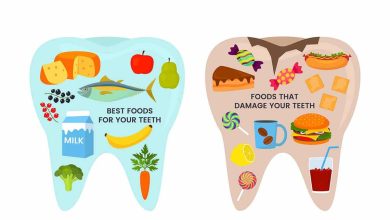Grapes Are Beneficial to Your Health

Grapes can be eaten fresh or used to prepare a variety of dishes and drinks. They are rich in minerals and vitamins, including the phytonutrient resveratrol.
The moderate sugar content in grapes makes them an excellent choice for those managing diabetes. However, those with diabetes should still monitor their intake to keep blood glucose levels in check.
Antioxidants
Grapes are packed with antioxidants and vitamins, including vitamin C, a powerful nutrient that combats oxidative stress. They boost your immunity, provide anti-aging benefits and promote eye health. For such a small snack, they pack a huge punch of nutrients.
A large amount of the polyphenol resveratrol is found in the skin and seeds of grapes. This antioxidant reduces oxidative stress and can extend your life span by protecting your cells from damage.
The flavonoid quercetin is another beneficial phytochemical in grapes, and it helps to prevent a number of chronic diseases such as diabetes, heart disease and arthritis. It has been shown to lower blood sugar levels, increase energy and boost the immune system. Quercetin also has anti-inflammatory properties. Moreover, it is known to help fight cancer and slow down tumor growth in the lab. Build strong relationships by using Kamagra Jelly Australia medicine and feeling your partner very special.
Fiber
Grapes have a moderate amount of fiber, which helps promote regularity and may assist in lowering your cholesterol. They contain both soluble and insoluble fiber, which plays an important role during digestion. Soluble fiber attracts water and creates a gel-like substance that helps your digestive system move foods along more quickly, and it may help prevent constipation.
Grapes also contain potassium, which is known to improve blood pressure and heart health. Research suggests that people who consume more potassium and less sodium (salt) have a lower risk of developing high blood pressure and a stroke.
The nutrients in grapes, including resveratrol and other antioxidants, can reduce your risk of cancer. However, make sure to purchase organic grapes, as conventionally grown grapes often have high levels of pesticide residue.
Vitamin C
The vitamin C in grapes can help strengthen the immune system, which may help you get sick less often and recover faster from infections. It also helps with collagen production and iron absorption. One cup of grapes provides over 20% of your daily value of vitamin C.
Resveratrol, a compound found in grapes, helps prevent cancer, inflammation and aging of cells and tissues. This may also help protect against heart disease and diabetes.
Add grapes to your diet as an afternoon snack, a breakfast bowl topping or salad addition and in baked dishes like chicken curry and casserole. You can even freeze them to make a delicious sorbet. Grapes are low in glycemic index and contain potassium, which can help maintain heart health by decreasing blood pressure and the risk of arrhythmias.
Vitamin K
Grapes are a healthy addition to any diet, offering vitamin C, fiber and a range of nutrients. The antioxidants found in these little fruits have been linked to reducing inflammation, improving heart health and protecting against some cancers.
Green grapes are a good source of vitamin K, which supports bone and blood-clotting health. They also contain potassium, a mineral that helps regulate blood pressure.
Black and red grapes are rich in the phytochemical escort maltepe resveratrol, which is associated with a decreased risk of heart disease. They are also a good source of vitamin C, vitamin K and potassium. They are high in fiber and low in calories, with a cup of grapes providing only 104 calories. This makes them an ideal choice for people with diabetes, but only when eaten in moderation.
Minerals
Grapes are a versatile food that can be eaten raw as a snack or cooked for jellies and jams. They are also made into wine and grape juice. They are also dried and used as raisins.
Grapes contain vitamin K which is needed to form strong bones and prevent bone breaks. They are also rich in potassium, a mineral that helps balance sodium and lower blood pressure.
Grapes also contain resveratrol which is known to reduce metabolic syndrome, obesity and heart disease. It is found in the skin and seeds of grapes. Resveratrol is a chemical that protects the body from inflammation, bacteria and viruses. Several chronic diseases, such as cancer, diabetes, arthritis and heart disease are caused by oxidative stress. Resveratrol in grapes is thought to increase anti-inflammatory chemicals in the body.
Heart-Healthy Benefits
Maintaining a healthy heart is crucial for overall well-being, and grapes can contribute to heart health in multiple ways. The high levels of antioxidants in grapes, particularly resveratrol, have been shown to improve cardiovascular health by reducing inflammation and preventing blood clots. Additionally, the fibre content in grapes can help lower cholesterol levels, promoting a healthy heart and reducing the risk of heart disease.
Improved Brain Function
Grapes contain compounds that have been linked to improved brain function and cognitive health. Resveratrol, one of the key antioxidants found in grapes, has shown potential for protecting the brain against neurodegenerative diseases like Alzheimer’s. Studies have suggested that resveratrol may help enhance memory and improve overall brain function.
Boosted immunity
If you’re looking to strengthen your immune system, adding grapes to your diet can be a great strategy. These fruits are packed with immune-boosting nutrients, including vitamin C, vitamin A, and various minerals. Vitamin C, in particular, is known for its ability to enhance immune function and protect against common illnesses like colds and flu. By incorporating grapes into your diet, you can give your immune system the support it needs to ward off infections and stay healthy.
Digestive Health
Grapes are a good source of dietary fibre, which plays a crucial role in maintaining a healthy digestive system. Fibre adds bulk to the stool, aiding in regular bowel movements and preventing constipation. Furthermore, the natural sugars found in grapes are easily digested, providing a quick energy boost without burdening the digestive system. Including grapes in your diet can promote digestive health and keep your gut happy.
Rich in antioxidants
Grapes are a rich source of antioxidants, which play a vital role in protecting our bodies from damage caused by harmful molecules called free radicals. The antioxidants found in grapes, such as resveratrol and flavonoids, help neutralize these free radicals and reduce oxidative stress. This, in turn, can lower the risk of chronic diseases, including heart disease and certain types of cancer.
Hydration and weight management
Staying hydrated is essential for overall health, and grapes can contribute to your hydration goals. With their high water content, grapes can help quench your thirst while providing essential nutrients. Moreover, grapes are relatively low in calories and fat, making them a smart choice for those looking to manage their weight. The natural sugars in grapes offer a sweet treat without compromising your dietary goals.
Conclusion
When it comes to fruits that offer a combination of deliciousness and health benefits, grapes often come to mind. These small, juicy, and flavorful fruits not only make for a delightful snack but also pack a powerful punch of nutrients. Grapes have been cultivated for thousands of years and come in a variety of colours, including red, green, and black. In this article, we will explore the numerous ways in which grapes can positively impact your health.





